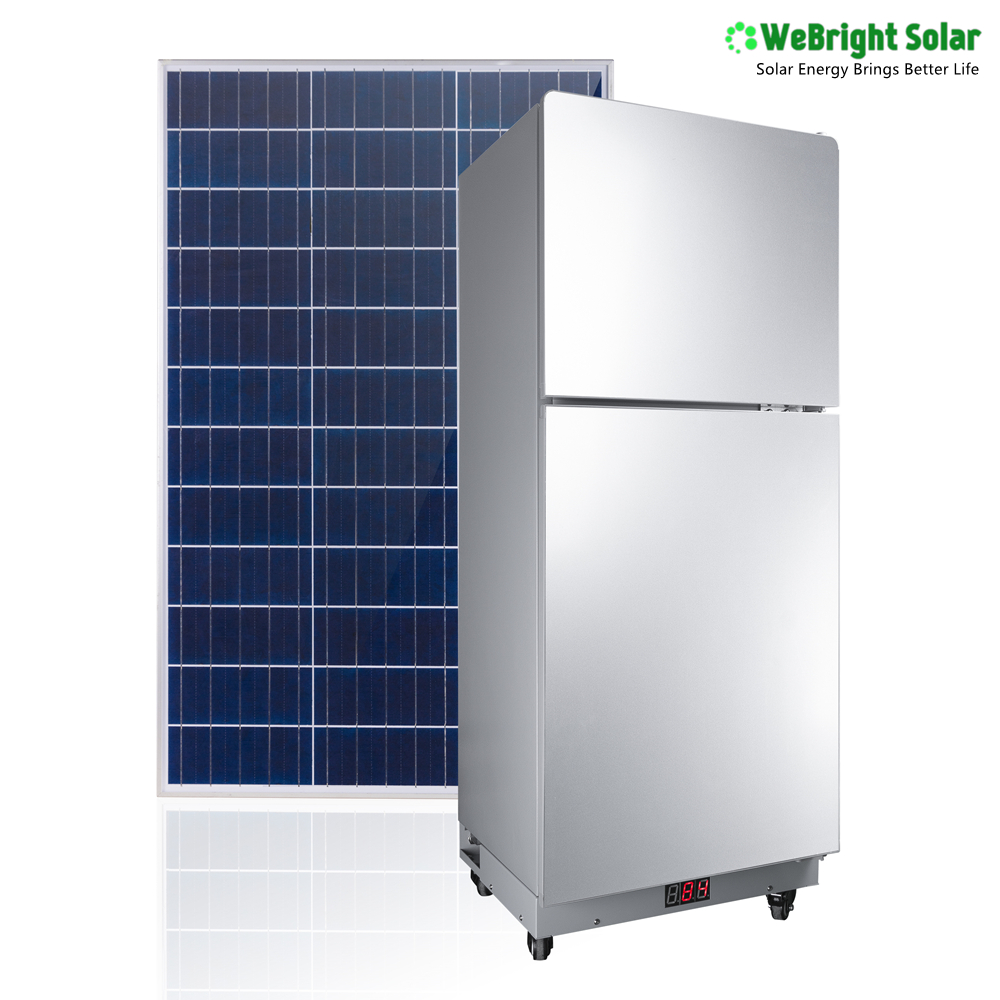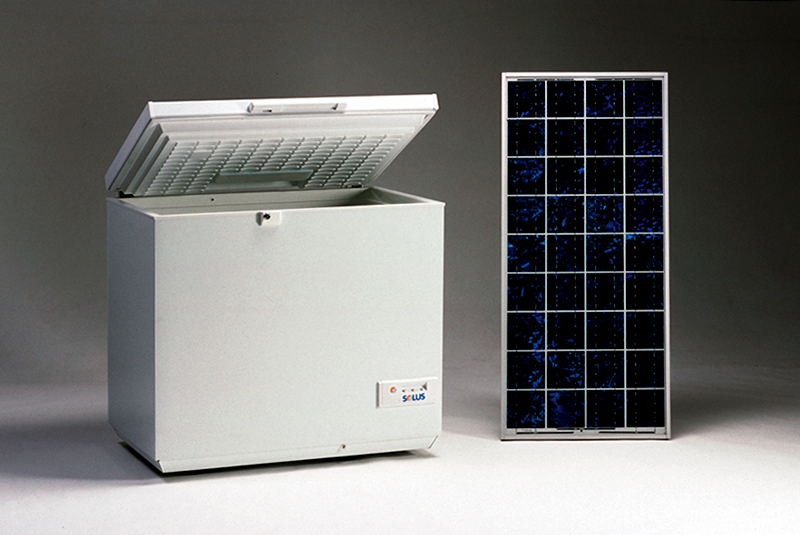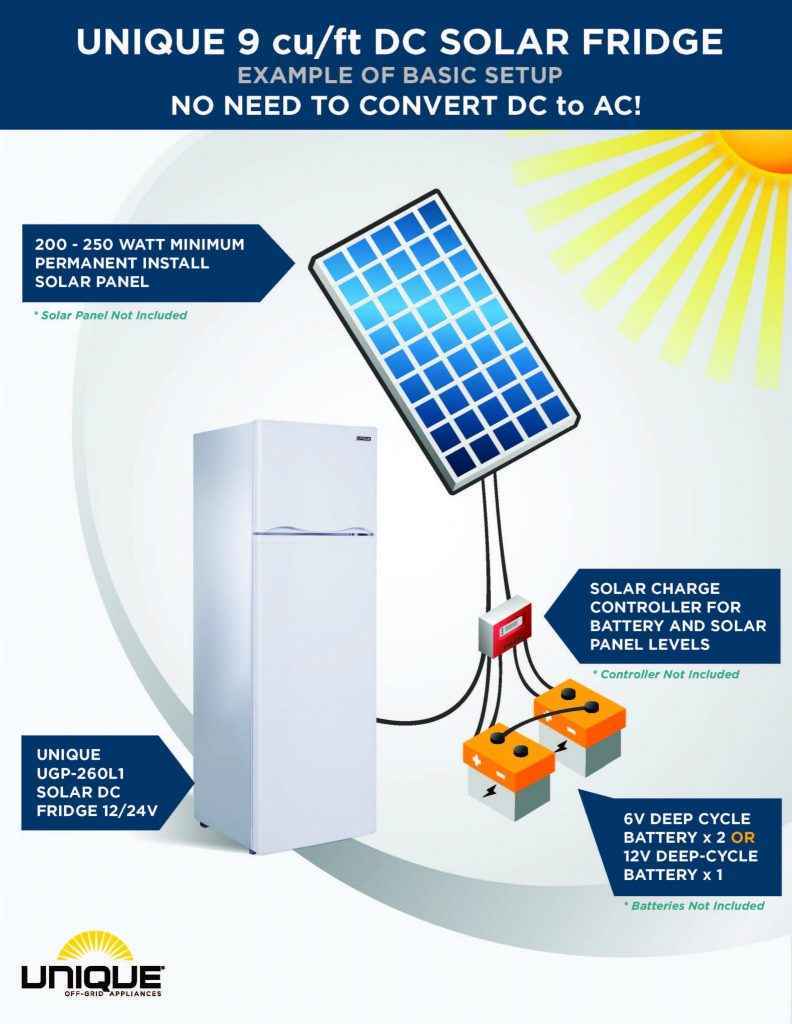The solar refrigerator is the next generation of cooling technology.
The solar refrigerator is the next generation of cooling technology.
Blog Article
Discover the Vital Features of Solar Refrigerator and Their Influence On Energy Effectiveness
The assimilation of solar refrigerator innovation stands for a significant improvement in power efficiency, defined by features such as advanced insulation and smart energy administration systems. These parts not only lessen energy loss yet additionally ensure ideal performance under varying sunshine conditions.
Recognizing Solar Refrigerator Modern Technology
Solar refrigerator technology uses the power of sunlight to provide reliable cooling remedies, especially in areas lacking reliable electricity. By making use of photovoltaic panels, solar refrigerators convert sunlight into power, which is after that utilized to power the cooling system. This cutting-edge approach not just minimizes dependence on conventional power sources yet also substantially decreases power costs gradually.
The core components of solar fridges include photovoltaic panels, a charge controller, batteries, and a refrigeration device. Solar panels catch sunshine and convert it right into functional energy, while the cost controller regulates the circulation of electrical power to stop battery overcharging. Batteries save the gathered energy, making it possible for the fridge to run even during over cast days or during the night. The refrigeration device, which can be a compressor-based or absorption system, executes the air conditioning feature important for protecting disposable things.

Key Features of Solar Refrigerators
One of the most remarkable attributes of solar refrigerators is their energy independence, allowing individuals to rely on eco-friendly sources for cooling down without the demand for a standard power grid. This attribute is especially advantageous in remote or off-grid locations, where conventional power access is restricted or non-existent.
Solar fridges usually use solar panels that convert sunshine into electricity, powering the refrigeration system efficiently. Numerous versions integrate advanced insulation innovation, which reduces energy loss and maintains optimal temperature level degrees also when sunshine is limited.
In addition, solar fridges are designed with straightforward interfaces, enabling for simple temperature level changes and surveillance. They frequently consist of features such as battery storage space, enabling them to work effectively throughout cloudy days or nighttime, thereby guaranteeing consistent air conditioning efficiency.
Longevity is another crucial feature; constructed from robust products, these fridges are developed to withstand differing ecological problems. Many models additionally flaunt eco-friendly refrigerants, which add to reduced global warming possibility.
Power Performance Conveniences
Energy efficiency stands as a substantial advantage of solar refrigerators, making them an attractive selection for ecologically conscious consumers. By using solar power, these refrigerators decrease reliance on standard power resources, dramatically decreasing their carbon footprint. This eco-friendly method not just profits the atmosphere yet additionally lines up with international initiatives to fight environment modification.

Moreover, solar fridges can help mitigate energy wastage connected with traditional refrigeration techniques. As they count on renewable resource, there is a notable decline in power loss throughout transmission and circulation, which is common with traditional source of power. This cutting-edge approach leads to an extra sustainable energy environment, eventually fostering a cleaner, greener future. By purchasing solar refrigeration innovation, customers not just minimize their power usage however likewise contribute to a broader activity towards lasting living.
Price Financial Savings Over Time
Buying find more a solar refrigerator can cause significant cost savings with time, particularly as electrical power prices proceed to increase. Standard refrigerators depend on grid power, which can rise and fall in expense and increase dramatically because of inflation and demand. On the other hand, solar fridges harness energy from the sunlight, minimizing reliance on standard power resources and supplying a much more secure lasting energy solution.
The initial financial investment in a solar fridge may be greater than that of a typical version; nonetheless, this cost is typically balanced out by the savings accumulated via lowered electricity expenses. Over time, the cumulative cost savings can be substantial, especially for houses in areas with high power costs or those that experience regular power interruptions. Furthermore, solar fridges frequently need much less upkeep and have longer life-spans contrasted to their standard counterparts, further enhancing their cost-effectiveness.
Furthermore, with developments in solar modern technology and decreasing rates of solar panels, the return on investment for solar fridges remains to enhance (solar refrigerator). As customers increasingly seek energy-efficient solutions, the economic advantages of solar refrigeration come to be much more pronounced, making it a wise selection for both budget-conscious and ecologically aware individuals
Environmental Impact and Sustainability
Solar fridges offer an engaging option for lowering environmental influence and advertising sustainability. By utilizing solar energy, these devices significantly reduce visit homepage dependence on nonrenewable fuel sources, which are a primary source of greenhouse gas discharges. The change to solar energy not just reduces carbon impacts yet additionally contributes to cleaner air and reduced international warming potential.
In addition, solar fridges typically use environment-friendly refrigerants that have marginal influence on the ozone layer contrasted to typical refrigerants. This lines up with global efforts to phase out compounds unsafe to the environment, promoting an extra sustainable refrigeration option.
Additionally, the lifespan and resilience of solar refrigerators contribute to sustainability. Many models are designed with durable products, thereby lowering the regularity of substitutes and electronic waste. Their off-grid ability is especially valuable in remote or underserved areas, where minimizing power usage and raising access to refrigeration can cause enhanced food protection and decreased putridity.

Verdict
In conclusion, solar refrigerators represent a considerable innovation in energy-efficient innovation. On the whole, solar refrigerators exhibit an important step towards a cleaner and even more sustainable future in refrigeration innovation.
Report this page